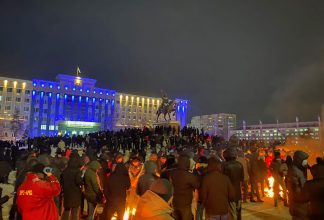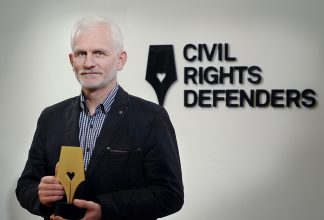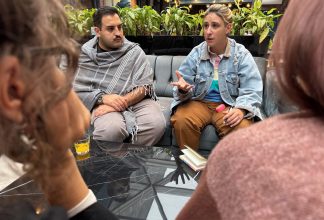We Urge António Guterres to Call for the Release of Jailed Lawyers and Opposition Members
9 June 2017
Mr. António Guterres
United Nations Secretary-General
United Nations
405 E 42nd St.
New York, NY 10017
Dear Mr. Guterres,
In advance of your upcoming trip to Tajikistan, we write to request that you use your visit to express concern to President Emomali Rahmon and officials in Dushanbe about his government’s politically motivated imprisonment of opposition activists and lawyers.
The United Nations Human Rights Council, the Working Group on Arbitrary Detention, the Special Rapporteur on the promotion and protection of the right to freedom of opinion and expression, the Special Rapporteur on the independence of judges and lawyers, and the Special Rapporteur on the situation of human rights defenders, have all publicly expressed their concerns about arbitrary detention in the country and have urged the Tajik government to respect the fundamental human rights of its citizens.
Since 2014, the Tajik government has undertaken a widespread crackdown to dismantle and discredit the country’s peaceful political opposition. While there is no complete list of political prisoners in the country, local activists have reported between 100 and 200 opposition members presently detained. Among those most targeted are members of the Islamic Renaissance Party of Tajikistan (IRPT), the country’s leading opposition party. The government arrested IRPT’s leadership in September 2015, including deputy chairman Mahmadali Hayit, accusing them of participating in a failed coup. Shortly afterwards, the government banned the party and forced it to close. Mr. Hayit is currently serving a life sentence after a closed trial where his lawyers were either arrested or deported from the country. Other groups have also been heavily targeted, such as Group 24, which called for democratic reform and was subsequently banned as “extremist.” In 2013, successful businessman Zayd Saidov was sentenced to 29 years in prison on specious charges after he attempted to create a new opposition party.
The harassment and imprisonment of Mr. Hayit’s lawyers is indicative of a broader trend in Tajikistan. Since 2014, authorities have arrested or imprisoned at least six human rights lawyers –Shukhrat Kudratov, Fakhriddin Zokirov, Buzurgmehr Yorov, Jamshed Yorov, Nuriddin Makhkamov, Dilbar Dodojonova – and Firuz and Daler Tabarov, sons of Iskhok Tabarov, another prominent lawyer. Mr. Zokirov was released after two lengthy periods of imprisonment. The others remain detained on dubious convictions or await trial on spurious charges. Buzurgmher Yorov and Nuriddin Makhkamov have been sentenced on politically-motivated charges to 25 and 21 years, respectively, and authorities are threatening further charges to lengthen these already arbitrary and draconian sentences. In May 2017, shortly after she had posted on Facebook an appeal to President Rahmon to halt his persecution of her imprisoned colleague Buzurgmehr Yorov, authorities interrogated leading rights lawyer Fayzinisso Vohidova and prevented her from leaving the country.
Disturbingly, Tajikistan’s campaign against freedom of expression and association has extended beyond the country’s borders. The government has sought the extradition of critics living abroad, using the Interpol system to issue red notices against members of opposition groups. In instances where extradition has not been successful, the government has resorted to kidnapping. Youth activist Maksud Ibragimov was detained in Russia in October 2014 on an extradition request, but later released. In January 2015, he was abducted outside a police station and forced on a plane to Dushanbe, where he was sentenced to 17 years on charges of extremism.
We urge you to raise these cases in your meeting with President Rahmon and to request that the Tajik government immediately release all opposition members and lawyers detained on politically motivated charges. The government should ensure that all lawyers are able to conduct their work without fear of threats or harassment. You should also seek commitments that Tajikistan will uphold its international obligations to respect freedom of association, assembly, and expression.
Your visit to Tajikistan is an opportunity to convey UN concern at the highest level about the deterioration that has occurred over the past several years. We are confident that your leadership and commitment to human rights will motivate the government to take positive steps in improving the situation.
Sincerely,
Civil Rights Defenders
Freedom Now
Norwegian Helsinki Committee


